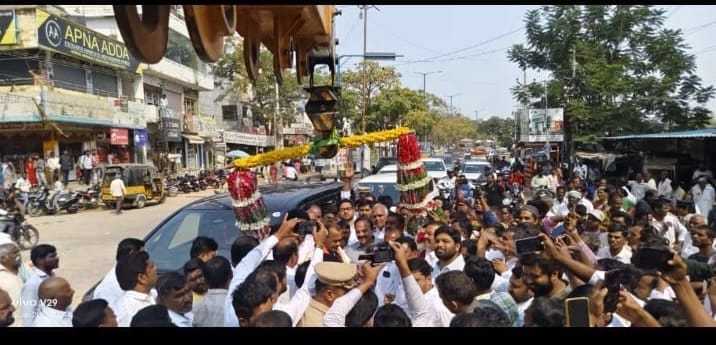Telangana Offers Free Sewing Machines to Minority Women Under Welfare Scheme
The Telangana State Minorities Finance Corporation (TSMFC) has started accepting applications for free domestic sewing machines under the ‘Indiramma Mahila Shakti’ scheme. This initiative aims to support the welfare and empowerment of minority women in the state. Over 10,000 sewing machines are set to be distributed, and the response has been overwhelming, with nearly 30,000 applications received in just four days. The application process will remain open until December 30.
The Telangana government has allocated Rs 432 crore to the Minorities Finance Corporation to implement various welfare schemes. Under this initiative, unemployed women from minority communities, such as Muslims, Sikhs, Buddhists, Jains, and Parsis, are encouraged to apply. Eligible women include those who are financially disadvantaged, destitute, divorced, widowed, orphaned, or single. Applications can be submitted through the official web portal (tgobmms.cgg.gov.in) until the deadline.
Since the announcement, a large number of women have been visiting the TSMFC office at Haj House in Nampally to submit their applications. On Thursday, long queues of women and girls were observed, underscoring the high demand for the scheme. Officials anticipate receiving nearly one lakh applications by the end of the application period.
One applicant, Asma Khatoon from Kalapather, shared her concerns while waiting in line. “I meet all the eligibility criteria. I have a white ration card, my income is below Rs two lakh, and I’ve completed training at a government-recognized institution. However, seeing so many applicants makes me worry about whether the true beneficiaries will actually receive the machines,” she said.
Activist Asif Hussain Sohail criticized the government for providing an insufficient number of sewing machines. He pointed out that the available 10,490 machines are far fewer than the number of applicants, raising doubts about how many women will genuinely benefit. “The machines are meant for destitute, divorcees, widows, orphans, and single women across all minority communities. How can such a small number meet the needs of so many?” he questioned.
Asif further highlighted the lack of clarity from the Finance Corporation on whether the machines will be distributed in phases or if the current stock is all that will be provided. He urged the government to ensure a fair distribution process, possibly on a district-wise basis. He also recalled instances in the past where applications were collected but failed to result in actual distribution, leaving many hopeful beneficiaries disappointed.
The scheme has sparked both hope and skepticism among minority women, who are eager to see whether the initiative will truly uplift their communities as promised.














